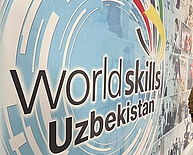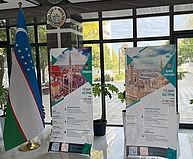Uzbekistan

| Title | Support for short-term, labour-market oriented Vocational Education |
| Type of project | Vocational Education and Training |
| Client | Ministry of Employment and Labour Relations (MELR), Tashkent |
| Origin of funding | German Government through KfW Development Bank |
| Duration | 09/2025 - 08/2029 |
The project supports the physical infrastructure upgrading, business planning and capacity building of 6 training institutes in Uzbekistan with the aim to provide short-term training programs relevant to the local, national and international labour markets in various sectors.
The overall Objective of the Project is capacity building and strengthening of the practical orientation of the vocational education sector in rural areas of Uzbekistan by providing labour market-oriented training methods to unemployed in the target regions and thereby increasing their employability. The specific Objective of the Project is the creation and/or enhancement of adequate capacities (incl. infrastructure, equipment, and trainings) and the labour market relevance of vocational training at the seven monocentres to be supported, primarily in rural areas.
In order to achieve its objectives, the Project will finance the following outputs: refurbishment of up to six preselected training centres, the provision of relevant equipment and the introduction of practice-oriented trainings for several professional profiles per training centre.
The two project components are as follows:
- Component 1: The investment measures will focus on the refurbishment and renovation of six training centres and where required construction of a few additional buildings (e.g. greenhouses or workshops), and the provision of training equipment according to specified job profiles.
- Component 2: The accompanying measures shall enhance capacities of the management, teachers, and masters of the training centres, where required enhance the labour market orientation of the educational curricula and support the TC managements in liaising with private companies as potential cooperation partners for cooperative education/training modules as well as future employers for the graduates.




